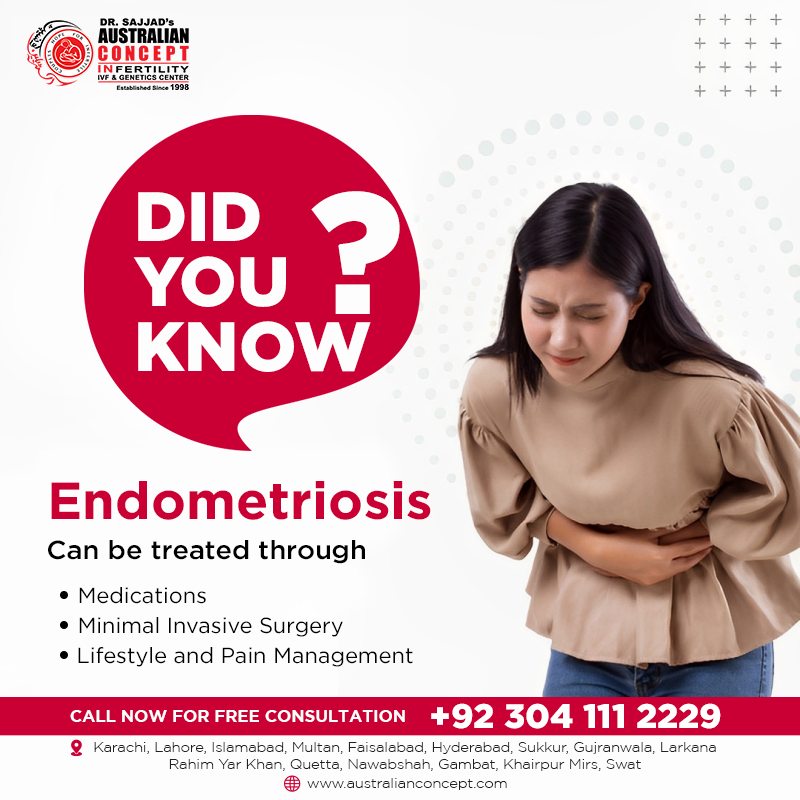 Earn with the DigitalOcean Affiliate Program or get a $200 Free Trial here 👉🏼
Earn with the DigitalOcean Affiliate Program or get a $200 Free Trial here 👉🏼
Written by Australian Concept Infertility Medical Center » Updated on: September 18th, 2024

Infertility is a complex issue that can impact many aspects of a couple’s life, and understanding its causes is crucial for effective treatment. Female infertility can arise from various factors that affect reproductive health. Identifying these causes is key to determining the right approach for conception. Here’s an in-depth look at the most common causes of female infertility and how they can be addressed at a fertility clinic or through advanced treatments at an IVF center.
Hormonal imbalances are among the leading causes of female infertility. The delicate balance of reproductive hormones is essential for regular ovulation and menstrual cycles. Conditions such as polycystic ovary syndrome (PCOS) disrupt normal ovulation, making conception challenging. PCOS often leads to irregular or absent periods and elevated levels of androgens (male hormones).
Thyroid disorders, like hypothyroidism or hyperthyroidism, can also interfere with hormone regulation and affect fertility. Proper diagnosis and treatment of these hormonal imbalances at a fertility clinic are crucial for restoring reproductive health and improving fertility outcomes.
Ovulation disorders are another common cause of infertility. For successful conception, an egg must be released from the ovaries and travel through the fallopian tubes for fertilization. Conditions such as premature ovarian insufficiency (POI) or hypothalamic dysfunction can result in irregular or absent ovulation. POI, also known as premature menopause, occurs when the ovaries cease functioning before the age of 40, leading to a diminished egg supply. Hypothalamic dysfunction can be caused by extreme weight loss, excessive exercise, or stress. Addressing these disorders through medication or lifestyle changes, often with the help of a specialist at a reputable fertility clinic, can help restore regular ovulation and improve fertility.
Endometriosis is a condition where tissue similar to the lining of the uterus grows outside the uterine cavity. This can cause pain, inflammation, and scarring, which can disrupt normal ovarian function and impede egg release. Endometriosis can also affect the fallopian tubes and uterus, making it difficult for an embryo to implant.
Treatment options for endometriosis include hormone therapy, pain management, and surgical interventions. For women with endometriosis, consulting with a fertility specialist or visiting an IVF center can help develop an effective treatment plan and enhance the chances of conception.

Blocked or damaged fallopian tubes can prevent the egg from meeting the sperm or hinder the fertilized egg from reaching the uterus. Conditions such as pelvic inflammatory disease (PID), sexually transmitted infections (STIs), or previous surgeries can lead to tubal blockages.
In such cases, assisted reproductive technologies like IVF in Pakistan Lahore can be an effective solution. IVF bypasses the fallopian tubes by directly fertilizing the egg in a laboratory setting and transferring the embryo into the uterus, overcoming the barriers created by tubal blockages.
Structural abnormalities in the uterus can impact fertility and the ability to sustain a pregnancy. Fibroids, polyps, and congenital uterine anomalies can affect the uterine lining or the shape of the uterus, making implantation challenging.
Fibroids are non-cancerous growths in the uterine wall that can distort the uterine cavity, while polyps are small growths that can cause bleeding or discomfort. Evaluating and treating these abnormalities through surgical procedures or other medical interventions at a leading fertility clinic can improve fertility outcomes.
Age is a significant factor in female fertility. As women age, particularly after the age of 35, the quantity and quality of their eggs decline. This natural reduction in ovarian reserve can impact the ability to conceive. Women experiencing age-related fertility issues may benefit from advanced reproductive technologies available at an IVF center. Techniques such as egg retrieval and embryo freezing can help manage age-related decline and increase the chances of successful conception.
Lifestyle choices can also affect fertility. Smoking, excessive alcohol consumption, and poor diet can negatively impact reproductive health. Smoking can damage ovarian follicles and reduce egg quality, while excessive alcohol intake can disrupt hormonal balance and ovulation. Maintaining a healthy lifestyle with balanced nutrition, regular exercise, and avoiding harmful substances is essential for supporting optimal reproductive health and improving fertility.
Autoimmune disorders, where the immune system mistakenly attacks the body’s tissues, can impact fertility. Conditions such as systemic lupus erythematosus (SLE) or rheumatoid arthritis can affect reproductive organs and hormone levels. Proper management of these disorders through medication and lifestyle adjustments, often with the assistance of specialists at a fertility clinic, can help improve fertility outcomes.
Genetic abnormalities can also play a role in female infertility. Conditions such as Turner syndrome, which affects ovarian development, or chromosomal abnormalities can impact egg quality and ovarian function. Genetic testing can help identify these issues and guide appropriate treatment options.
Certain medical treatments, such as chemotherapy or radiation therapy for cancer, can damage ovarian follicles and reduce egg reserve. Women undergoing these treatments should discuss fertility preservation options with their healthcare provider. Fertility preservation methods, including egg freezing, are often offered at specialized IVF centers.
Understanding the most common causes of female infertility is essential for addressing reproductive challenges and finding effective solutions. Whether dealing with hormonal imbalances, structural abnormalities, or age-related factors, consulting with a specialized fertility clinic can provide valuable insights and treatment options. For those considering IVF in Pakistan Lahore, advanced fertility treatments are available to tackle various infertility issues and support successful pregnancies.
We do not claim ownership of any content, links or images featured on this post unless explicitly stated. If you believe any content infringes on your copyright, please contact us immediately for removal ([email protected]). Please note that content published under our account may be sponsored or contributed by guest authors. We assume no responsibility for the accuracy or originality of such content.
Copyright © 2024 IndiBlogHub.com. Hosted on Digital Ocean